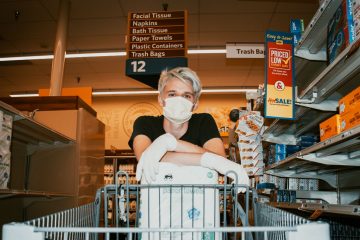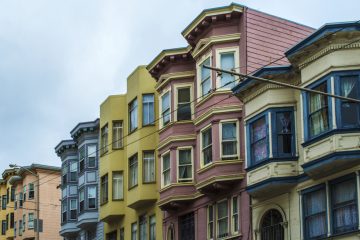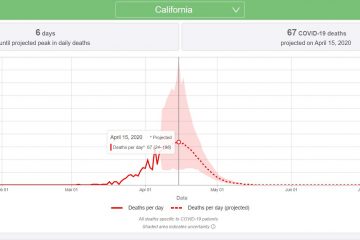Paul Madonna : Drawing through Dark Times in San Francisco
By: Shayna Yasuhara
You might first recognize Paul Madonna’s artwork from All Over Coffee, a San Francisco Chronicle comic series that was published between 2004 and 2015. The book is widely available, and even the De Young Fine Art Museum Bookstore is not without a copy. The inspiring illustrated scenes are of an idyllic San Francisco, filled with the iconic Victorians and romantic cafes—it’s like Madonna has captured the very essence of the San Francisco dream. Ya know, the classic one that has inspired so many to buy a one-way-ticket to SFO and make a life here.
Unfortunately, that dream was met with a rude awakening when Paul Madonna received notice that he was being evicted. This all-too-familiar story is often the last one you hear from a friend as they’re about to move to Portland—never to be seen again. Joking aside, it’s a devastating life-changing moment for many. Especially those who are living on a lean budget; long-standing locals, freelance artists, musicians, writers, and creatives, among the list.
Hearing that Paul Madonna faced eviction after drawing SF in such a beautiful light for so many years and inspiring the bright-eyed optimists, it seemed like a bold betrayal. Maybe it was true. The city’s soul had been gobbled up by the heartless tech-fueled robot.
The good news is that Madonna was not destroyed by the experience. Instead it led him toward his next book On to the Next Dream, set to be released this April. This book is once again centered around San Francisco, but with a different look at the more sobering ground-level pieces, the discarded, lonely parts of the city…where underdogs live.
Madonna takes his intensely emotional experience, takes that negativity and turns it into art. As Madonna puts it, “Anyone can run up to a rooftop, tear off their clothes, and scream about how screwed up the world is. But for the people down below, all they see is a person losing their mind. I wanted to make something that channeled that emotion in a way that elicited an empathetic response from the reader. So that after you read this book, you would want to run up to the rooftop and scream about how screwed up the world is.”
We thank Paul for not adding to the many who are already screaming in the streets—and for sharing his experience and words to help along others facing adversity and trying to make it as a creative in the city. Here’s a quick interview we did with the man himself.
First off, that’s pretty awesome that you were the first intern at Mad Magazine! What are your thoughts on interning and working for free? Do you feel this is a necessary step for those looking to get into their dream profession or is it a bit exploitive?
When you’re starting out, being willing to donate your time is integral to becoming a professional. For one, you get to learn the methods and inner-workings of organizations that show you the difference between real world decision-making and that of the academic world. Often these environments look and function differently than you had thought, allowing you to adjust your course quickly, and move towards the work you enjoy the most, and are best suited for.
How did you navigate your feelings after being evicted?
If I was feeling angry, I had to investigate not just who or what I was angry at, but why. And then I had to do the hard part and ask myself, ‘Are you justified in where your anger is being directed?’ So while I allowed my emotions to be valid, I knew that if I were to use them constructively, in the service of art, then I had to look at them dispassionately. Some might call this therapy, and I suppose it was. But I also had a goal that was larger than just healing myself, which was connecting to an audience.
Because ultimately, what I discovered though writing this book was that it wasn’t a story about me in a challenging situation, but about how all of us feel when we’re unexpectedly thrust into change. Life is constantly pulling rugs out from under us. And what matters, is how we deal when it does.
What has happened since your eviction? Where are you living and working nowadays?
I’m now living and working in the Excelsior, but I’m not ready to open up my new space to the public just yet. A studio takes a long time for me to get functional. I was able to get to work immediately after moving in—I had to—but I’m still figuring out how to use this particular space. A studio is a sort of tool, a very versatile and complex mechanism. There is a give and take with it. I’d set up to continue working as I had been, but the unique properties of the new space forced me to make new decisions. This in turn is changing my work. In effect, it’s an extension of the creative process. Think about it like any other tool. If you’ve been painting with a brush and someone hands you a pen, the nature of the marks you make are going to change. A new space functions in much the same way.
All this to say that I’m very grateful for my good friends Annie and Eric who own 3 Fish Studios. They have been extremely generous. They produce all of my giclee prints, but because their shop is also a retail space, they have a great deal of versatility. They’ve invited me to do all sorts of events, and it’s been wonderful to work with them even more. So much that we’re having the release party for this book there, on April 1st.
Any advice to freelance artists and writers who are nervous/ borderline scared shitless that they won’t be able to make ends meet in San Francisco. Can it be done?
I believe it can be done. I came here twenty-three years ago and figured it out. It wasn’t easy. It took me nine years to get published, and I lived on a lot of shoestrings in that time. I think what it ultimately comes down to is dedication. I’m not a fan of the idea that artists are required to suffer, but at the same time, one has to be willing to rough it out through the worst of times. I came here wanting to be a professional artist and writer, and was unwaveringly committed to working toward that goal for as long it might take. Nine years is a long time, especially when you’re in your twenties, but my priorities were clear, and I would have kept on pushing had it taken me longer. So short answer is ‘yes’, I believe someone coming here today can make it. But they have to be absolutely committed.
Do you have a favorite image, or one that resonates most with you from the new book?
I love all of the pieces with the burn marks on them. When I first started drawing them I worried that they might be too obvious, but the longer I live with them, the more I loved them for their straight-forwardness. There was something cathartic about drawing burn marks onto my images, and letting those burns consume more and more of each page.
I feel like All Over Coffee was it’s own service to the city and partially why this whole eviction story is so heartbreaking. I think that when someone gives something back to a city that they should be able to apply for a special grant or funding to help them make ends meet. Teachers, artists, community organizers…kind of like when you fix something for your landlord and then they give you a rent discount. Do you think that would ever work?
I love this idea, but I think us creative types often forget what exceptional jobs we have. A lot of work offers very little reward other than a paycheck. There are compromises, repetitions, and tasks that seem futile or against our better judgment. Which isn’t to say creative work is all easy. I work harder at this than I ever did at any job. The difference is, that creative work offers an opportunity for exponential returns. The fact that we can potentially make something today that can go on to affect people’s lives for countless years is amazing.
At the same time, I think what you’re talking about is social service. At regular jobs, if you were to get laid off, you might get a severance or be able to collect unemployment. But nothing like that exists for the self-employed. We make our money how and when we can, and when we stop giving energy, the tap dries up. There are no paid vacations when you work for yourself.
This ties back to the other question, though, about dedication. Because, I know for me, this is the work I want to do. And so whether I like it or not, my task is not just writing and drawing. But also finding a way for it to pay for my life.
Paul Madonna’s new book On to the Next Dream will be available starting in April. The Book Launch is happening Saturday, April 1st, 5pm at 3 Fish Studios.
Additional signing events are Wednesday, April 19th, 7pm at City Lights Bookstore and
Wednesday, May 3rd, 7:30pm at The Booksmith. Full details can be found here.





